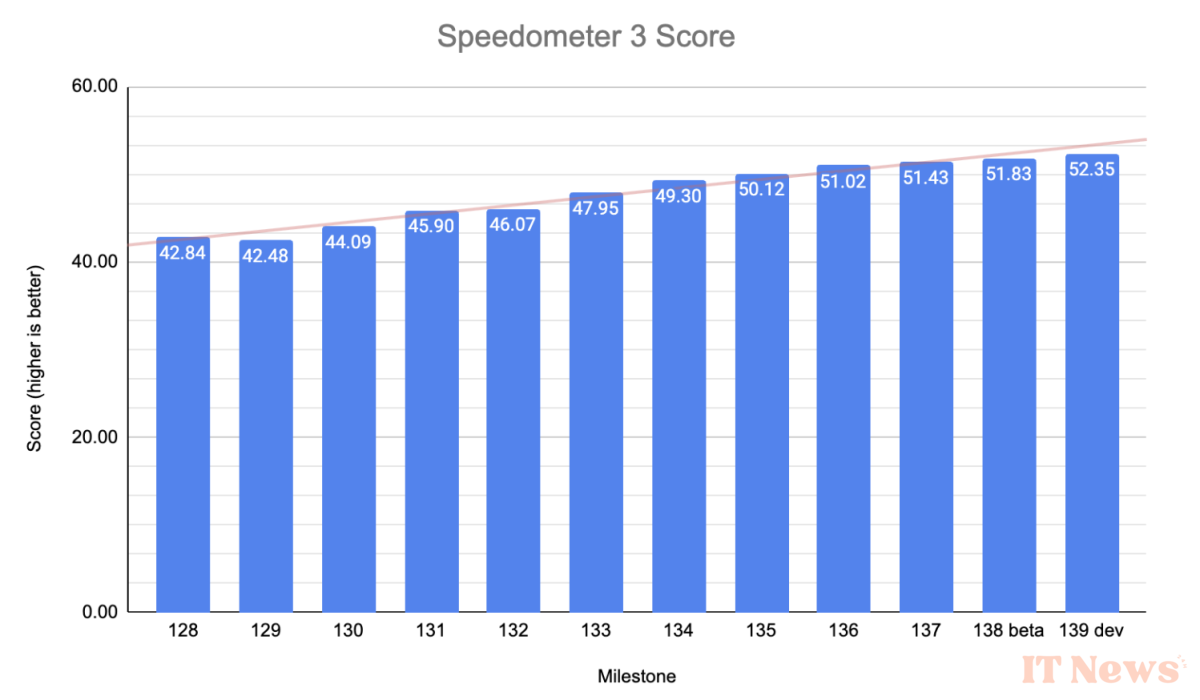Several optimizations have made Chrome more efficient. The web browser even stands out on a specialized benchmark.
Google announces that Chrome has broken the speed record on the Speedometer 3 benchmark, making it the fastest web browser on the market. This performance was made possible by a series of optimizations rolled out over the past few months, resulting in a 10% improvement today compared to August 2024.
“If every Chrome user used Chrome for just 10 minutes a day, these improvements would save 58 million hours, or about 83 lifetimes, of waiting for websites to load and run,” explains Google. These statistics are hard to rationalize, but the point is elsewhere: the world’s most used browser has never been faster.
Chrome optimized to break a speed record
Perhaps most interesting is how Google’s software engineers achieved these results. “The team heavily optimized the memory layout of many internal data structures for the DOM, CSS, layout, and painting components,” explains the firm. Chrome's Blink rendering engine now "avoids many unnecessary modifications to system memory by keeping state in place relative to access patterns, thus optimizing the use of CPU caches," we learned.
Chrome Speedometer 3 score, obtained on an Apple Macbook Pro M4 running macOS 15. Credit: Google“Rendering engine strings were significantly improved last year, avoiding expensive representations wherever possible and using fast hashing. More generally, many data structures have been given more efficient hashes, filters, and probing algorithms,” Google also adds.
When rendering is complex, such as calculating CSS styles across different elements, caches are now used much more efficiently. And on the contrary, Chrome caches fewer unnecessary elements. Font formatting is another challenge for the rendering engine, and here too, Google has managed to implement various optimizations to speed up rendering. Taken together, all these small changes contribute to making browsing on Chrome faster. Of course, you have to accept some privacy concerns.





0 Comments